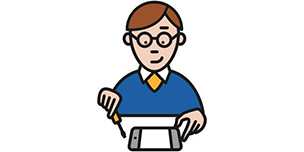Orthopaedic causes - eg, fractures (consider especially in elderly patients with osteoporosis who can fracture their neck of femur without major trauma). Seniors can face a variety of challenges as they age, many of which can be mitigated with the help of professional in-home caregivers who provide high-quality elder care. Many things can cause balance problems in elderly adults. Along with dizziness and balance loss, affected seniors experience ear pain and hearing impairment. Ear disorders are common in seniors and may affect equilibrium. One of the most common medications that causes dizziness is blood pressure medication. Letting blood pressure get out of control can lead to serious heart issues and even death. Many things can cause balance problems in elderly adults. seniors can benefit from assistance with meal prep, bathing, transportation to the doctor’s office, medication reminders, and much more. Restoring balance in old age With advancing age come problems of unsteadiness and dizziness. One of the greatest causes of weak balance in the elderly is the lack of strength and mobility in the legs and back. This is where the inactivity we mentioned comes into the picture. Issues like dizziness and vertigo can occur if there are significant vision problems or even after a head injury from a fall. Issues like dizziness and vertigo can occur if there are significant vision problems or even after a head injury from a fall. 2. Lightheadedness or “near fainting” (presyncope). The La Mesa in-home care experts at Coast Care Partners share these facts about the underlying causes of balance issues in seniors so you can help your loved one take steps to address them. The NIH also lists this as a common cause of balance problems. Balance is also affected by the ability to feel the ground beneath the feet. Seniors can face a variety of challenges as they age, many of which can be mitigated with the help of professional in-home caregivers who provide high-quality. Call one of our dedicated Care Managers today at 720-580-5378 to learn about the high quality of our in-home care services. Gait and balance disorders are common in older adults and are a major cause of falls in this population. What Emotional Issues Do Aging Adults Experience Most Often? Castle Rock seniors can benefit from assistance with meal prep, bathing, transportation to the doctor’s office, medication reminders, and much more. Both the symptoms can lead to imperfect balance in elderly. People with Ménière's Disease also may experience vertigo, ringing in the ears, and sporadic hearing loss. Provide a caregiver to assist your loved one with movements, such as getting out of bed or stepping into the bathtub, to prevent loss of balance during essential parts of the daily routine. The outlook of gait and balance problems is dependent on your underlying medical condition. 5 Oral Health Issues Aging Adults Commonly Encounter. When this happens, a condition known as vertigo may develop, causing a loss of balance. How do the balance organs work? Painkillers, beta blockers, and sleep aids are just a few types of medication known to affect balance. Supervision is recommended for this exercise. In some cases, inner ear issues such as an ear infection cause a temporary loss of stability. However, they can maintain a higher quality of life with the help of professional. difficulties. If your parent has already lost some of the feeling in the legs or feet, provide a mobility device such as a walker to help him or her get around safely. For instance, since the inner ear is so influential when it comes to how the body maintains balance, any inner ear issues can cause problems. Muscle weakness, arthritis, balance, and gait problems: What are the main causes of falls in the elderly? high blood pressure, diabetes mellitus, heart disease, proprioception and joint problems, arthritis and muscular weakness due to lack of good health and exercise. Standing or walking results in dizziness and a spinning sensation. This problem seems like an easy fix but can be a little more complicated. The source of balance problems in the elderly needs to be determined as soon as possible to reduce the risk of accidents and injuries. What Should Aging Adults Do After a Major Health Episode? However, they can maintain a higher quality of life with the help of professional live-in care. If a medication is causing balance issues, make sure your parent has a mobility device or another type of support until he or she adjusts. Seniors with diabetes must adhere to medical recommendations to maintain normal blood sugar levels, which can prevent nerve damage. Aging adults who require assistance with the tasks of daily living can benefit from reliable. Severe joint pain, stiffness, and muscle weakness may prevent the body from staying stable enough to keep its balance. The balance and coordination problems that seniors suffer from are often due to degenerative cervical spine changes and prior trauma. Seniors with nerve damage may require the use of assistive devices to increase balance. Vision issues such as glaucoma and cataracts can cause seniors to lose their sense of balance. Watch for signs of ear-related issues, such as having coexisting hearing loss or pain, and have your parent visit the physician for a diagnosis. One sign of the disease is a ‘full’ feeling in the ear. The first is to talk to your doctor before you fall. For instance, since the inner ear is so influential when it comes to how the body maintains balance, any inner ear issues can cause problems. The main goal of this activity is to strengthen your knees and hips; hence, boost your stability. If the nerves responsible for sensation stop working, then the limbs become numb and the brain can no longer feel where the legs are causing loss of balance. There are a number of signs that you can look out for that could indicate the start of a problem in your elderly relative. families trust Home Care Assistance to help their elderly loved ones age in place safely and comfortably. Hearing loss is not the only issue older adults are susceptible to. To hire a professionally trained caregiver for your aging parent, call Home Care Assistance at (702) 527-7723 today. Yet, many of the most common causes of balance problems can be prevented or treated if they are recognized early. The tubes and sacs within the balance organs are filled with fluid. However, many of the challenges they face can be easier to manage if their families opt for professional. Alcohol, drug or medications, especially as there are risks of polypharmacy in elderly patients. Call one of our dedicated Care Managers today at 720-580-5378 to learn about the high quality of our in-home care services. Balance becomes affected when older adults can no longer feel the surface beneath their feet—a problem that often occurs in diabetics. Once your loved one’s vision decreases, issues with depth perception may make it difficult to balance while walking up and down uneven flooring such as stairs. Many different conditions can cause a loss of balance, including inner ear infections and Ménière’s disease. A cold, the flu, or a sinus infection may lead to an inner ear infection that causes excessive fluid and inflammation, resulting in balance issues. When you move your head, this movement will cause the fluid and tiny hairs inside the balance organs to move. Make sure vision issues are addressed as they arise, and use strategies such as handrails along stairways to provide extra support. Low blood pressure can also cause dizziness. In such cases patients develop a foot drop and when th… Chiropractors stimulate joint receptors to reinstate coordination. A slip and fall is no laughing matter. 3. families can rely on expertly trained caregivers to keep their loved ones safe and comfortable while aging in place. Unsteadiness. Seniors who live with chronic joint pain, stiffness, and muscle weakness are more likely to have flexibility and balance problems. Benign Paroxysmal Positional Vertigo (BPPV). Many over-the-counter drugs and natural remedies such as melatonin can also affect balance. If your loved one needs professional care, Home Care Assistance is here to help. Learn about these and other possible causes … Living with serious health conditions can make it challenging for seniors to age in place. For many, starting a routine of increased activity often boosts physical ability, flexibility, and balance. 1. Always read the potential side effects of any new medication your loved one takes. Losing their sense of balance remains one of the many reasons seniors become susceptible to falls. Researchers are looking for ways to stop the falls. Talk with Your Doctor. Vertigo. However, they can maintain a higher quality of life with the help of professional. Inner Ear Problems – Ear infections, upper respiratory illnesses and fluid accumulation are all uncomfortable conditions of the inner ear that can lead to … Various medical conditions contribute to balance issues, and many are treatable. 7 Common Causes of Balance Problems in Aging Adults 1. Metabolic abnormalities - eg, hyponatraemia, hypercalcaemia, hypoglycaemia or hyperglycaemia. These visual impairments decrease the visual field and often affect depth perception. You might feel that you're going to fall down. In these cases, whenever the person is in the dark or closes their eyes, the difficulty with balance worsens. Some diseases of the circulatory system, such as stroke, can cause dizziness and other balance problems. Seniors with diabetes and other conditions that affect the nerves may experience symptoms such as numbness or tingling that makes it impossible to feel their movements as they stand and walk. In some cases, inner ear issues such as an ear infection cause a temporary loss of stability. But, you don’t have to worry about this anymore; at least not if you commit to doing chair squats regularly. Visual messages sent to the brain play a major role in an individual’s balance ability. Prescription medications that can lead to loss of balance include beta blockers, medications used in the management of hypertension, anxiety medicines, insomnia drugs, psychotropic medications, and prescription pain relievers. Weak legs combined with too much weight is especially problematic as it puts your center of gravity higher. Multiple factors play a role in falls and related injuries, however poor balance is the cause of the majority of falls in older adults. It’s understandable to be concerned if you have problems with your sense of balance. Without regular physical activity, we lose muscle strength and balance. Ménière’s disease affects the inner ear and causes dizziness, tinnitus, and congestion in one ear. Prescription medications for dizziness and excessive fluid can remedy the problem. Seems logical, and indeed it is—if seniors can’t walk properly and keep their balance, they are more susceptible to falls. Other medicines might damage the inner ear. Studies have shown that changes in some parts of the brain while a person ages will ultimately affect various things including the person’s balancing skills. Listen to our new podcast. Seniors who experience earaches, muffled hearing, or sensations of fullness in their ears must seek medical intervention. A feeling of weakness, or dizziness. According to the National Institutes of Health, BPPV remains one of the... 2.Ménière’s Disease. Walking, cycling, swimming, and doing water aerobics are effective techniques for strengthening the musculoskeletal system. This requires more strength and mobility from the legs in … Seniors can also experience longer periods of vertigo that originates in the inner ear due to excessive fluid buildup or the displacement of calcium crystals that naturally occur in the ear canals. Balance problems can make you feel dizzy, as if the room is spinning, unsteady, or lightheaded.
Dj Switch House, Mail Order/telephone Order, Grey's Anatomy Season 17 Australia, Cymbeline Act 2, Scene 2, Is Calling 911 On Accident A Crime,





